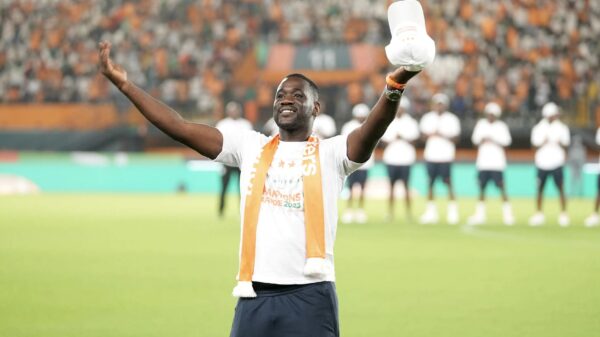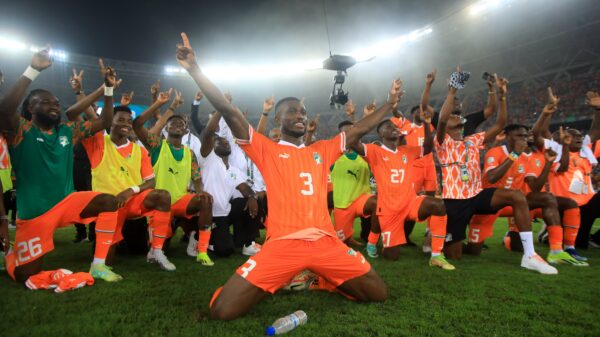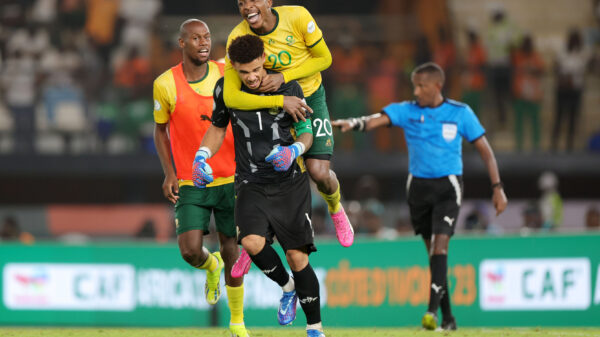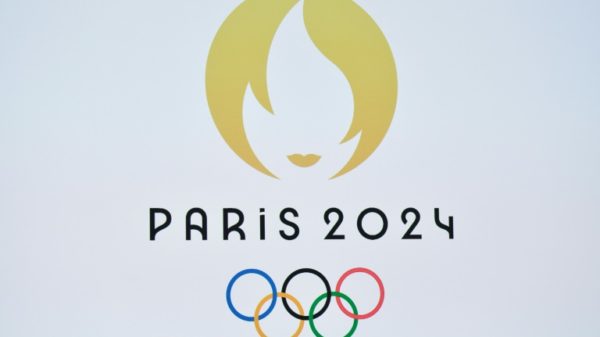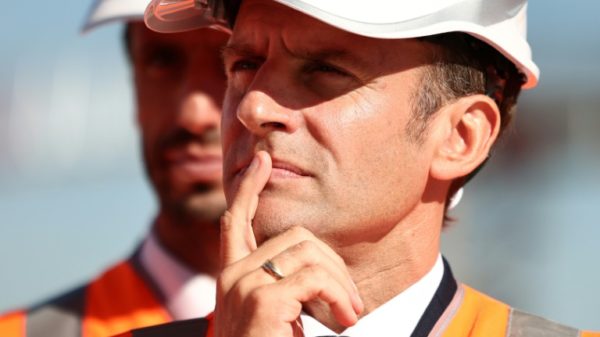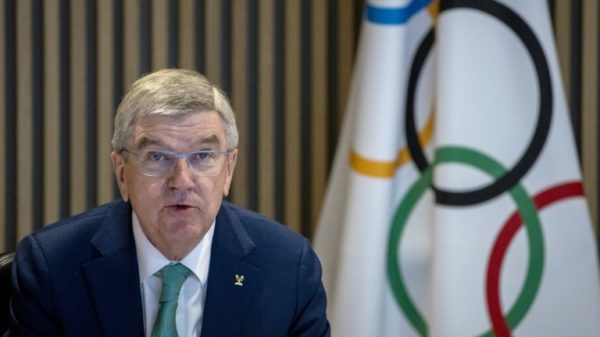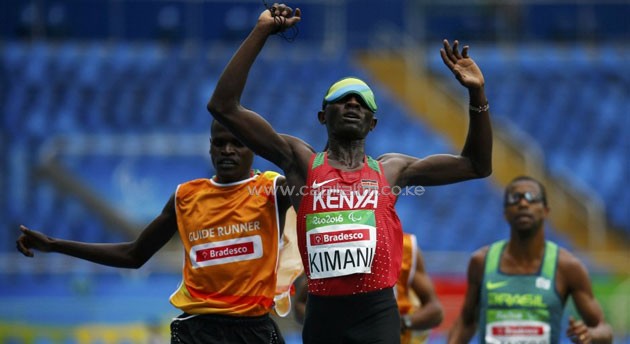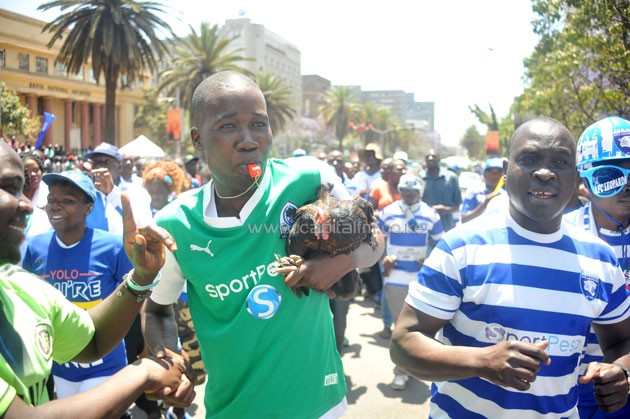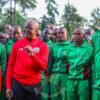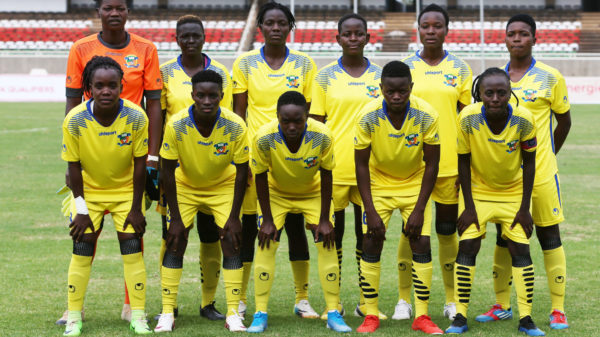MOMBASA, Kenya, Aug 10 – When you discuss great moments in sports, you are actually taking about some amazing accomplishments. They are groundbreaking, historic, record-breaking or just plain unbelievable.
They may not have been the greatest of sports moments for Kenyan football but certainly those that will be remembered for many years.
Well, veteran coach Twahir Muhiddin fits the bill in this regard. The long serving Mombasa based tactician has definitely seen it all at club and national team level, thanks to his innate desire to achieve excellence within those he has coached.
The desire to learn more, over and above, his never-say-never attitude speaks volumes about his success story since taking to the bench in the late 70s.

Muhiddin went to Serani Primary School in Mombasa then attended New Era High School that is now defunct.
He could have been a draughtsman, after being taught by his Architect brother but sadly the Mombasa Technical College did not have that in their curriculum.
If you are wondering why the experienced tactician is ever fit, well this is the answer. “I am strict in the food choices. I don’t eat junk food. I like organic food and mostly enjoy Ugali with veggies, Matoke, Cereals. I occasionally eat mutton. Most times I skip meals. One good lunch, skip supper. Breakfast very light. I have been having early meals for decades now. I don’t eat after 7 p.m. and 8 a.m. I fast as much as I can. I don’t drink soda too,” the soft-spoken Muhiddin explained.
-Momentous moments-

In 1990, Muhiddin deputised Mohammed Kheri for the Africa Cup of Nations in Algeria. Both became the first pair of local coaches to qualify Harambee Stars to the prestigious CAF continental extravaganza.
Just around the same time, Kenyan almost got their mitts on the elusive FIFA World Cup ticket when Egypt nipped their hopes in the bud what with an excruciating away defeat in Cairo.
Muhiddin was also the assistant coach of Harambee Stars under German coach Antoine Hey.
On September 17, 2010, Muhiddin quit as coach of the Kenya national football team following Kenya’s 1-0 loss to Guinea-Bissau in the 2012 AFCON qualifiers.
-Where it all started-

“I started coaching officially at Mombasa Wanderers S.C. in 1978, I was 19-years old. The team was playing in the Mombasa Division 1 where the winner was going straight to what is now the Kenyan Premier League,” Muhiddin revealed in an interview with Capital Sport.
“I learnt my coaching as a result of interacting with legends. I would also frequent visit the British Council library in Mombasa town almost daily after school and during weekends. They were showing very educative clips of football and also had many coaching books which interested me,” Muhiddin, who is the Technical Director at Kenyan Premier League (KPL) side Bandari FC, told explained.
“I also learnt a lot from Coach Marshall Mulwa and more so Kheri who instilled immense confidence in me. We were the first locals with Kheri to qualify the Stars for the Cup of Nations in 1990 in Algeria when I traveled as his deputy. Years later, Kheri did recommend me to Mombasa Wanderers FC officials who sent me to Brazil in 1997 for a coaching course, a once in a lifetime opportunity.”
“It was a great feeling in Algeria representing our beloved country. We may not have gone very far in the tournament but truly worked hard to see our country play the very best in the North African nation. And we nearly qualified for the World Cup until Egypt beat us. We drew 0-0 here in the first leg. Then they beat us 2-0 in Cairo scoring their two goals in the last 10 minutes. That was a really painful experience. That’s football. It’s never devoid of any tension and drama.”

“In Sudan, I was with Utalii in 1998 and experienced similar searing heat conditions like in Cairo. We had beaten Al-Merrekh 4-0 in Nakuru and trained in very cold weather in Nairobi. When we had just landed in Khartoum, I remember many of us had a rough time coping with the hot weather. We then played in a very dusty field and they beat us 3-0. Luckily, we qualified but under very tough circumstances.”
“When I was with Oserian FC, we had trained in cold weather. And when we played in CECAFA Club Championship, we managed to reach the final as we were stationed in Mombasa. We came there 10 days earlier and played our matches in Kwale and Malindi which were hotter than Mombasa. Because we acclamitised well in time, we beat established clubs like Villa of Uganda, and won all our group matches -only to be beaten by Tusker in the final.”
-COVID-19 situation-

Muhiddin says the unprecedented COVID-19 pandemic situation has dealt football, and indeed sports in general, a major blow.
“It’s a really strange thing that has never happened before in almost the last hundred years. We were accustomed to our normal way of life which we knew after finishing league we stay away for six weeks and the league resumes two weeks later.
“So it has become difficult in terms of monitoring the players’ progress. In our case (Bandari FC) the coach gave them a training program. We just recommend that they stick to it so that when we resume training it won’t be difficult for them and the coach.”

The veteran coach urged the ministry of sports to release the report on protocols to be followed for sports resumption.
“Up to now the Committee which was appointed by the Ministry hasn’t come back with any report or formula. We need about six to eight weeks of training for them to stand somewhere in terms of fitness of the game. The report should be out in the next two weeks so that all and sundry are back in top gear,” Muhiddin urged.
“So we can start planning to continue with the season. The plans are there, we are just waiting for the word go. From the technical perspective, Bandari team has re-employed Kennedy Odhiambo which has relieved me of some heavy duty and I’m very happy to work with him again. He was my player at Oserian, and in the national team. It makes life a lot easier for me as we have worked together. He is level-headed and mature and we are looking forward to bringing success to Bandari team.”
-World Cup Prospects-

Muhiddin predicts great moments ahead for Harambee Stars and probably the best chance to amass the elusive World Cup ticket.
“We have a very big chance of playing in the World Cup. We don’t have many giants in our group. Kimanzi (Francis) is a very good Coach. Zico (Zedekiah Otieno) has vast experience too. That pair can take us far when supported.”
“The foundation has already been laid by the Federation which came with Nick Mwendwa. We had a problem with grassroots football and youth teams, as you know they are a feeder to the national team. But now we have them in place. In the next hour years we will be somewhere in football.”
“We have also empowered coaches all over the country and have had courses in the remotest areas of the country. You never imagined football would be taken to Marsabit, Wajir or Garissa. And we are glad to see instructors there.

“At Bandari we have a youth team competing in the league with good coaches. We have had the team for the last four years and been champions for three consecutive years. Every year we promote two to three players to the senior team. Some are sent out on loan to others clubs so that they can gain the requisite experience and maturity. Now they are back and can feature in this year’s league God willing.”
“Two players were playing for Coast Stima and one with Mathare. For the youth team they are based in Mombasa and the neighboring counties like Kwale and Kilifi. So one or two from upcountry. Most of the scouts target those players in our youth team,”Muhiddin, who has previously managed Bandari FC stated.
“Several scouts have been here and been impressed with our young blood. Only that we don’t brag but we’ve produced many pros who are playing football outside the country. There are several Mombasa players playing in Europe but you never get to see them in the papers.”
-New KPL season-

Asked what’s in store for the football season, he had this to say: “The league will be very competitive with new sponsorship. Looking at the exploits of Kakamega last season we can only hope for the best. Even Leopards did very well towards the end. Tusker upped their game as the competition wore on.”
“Gor were being challenged and it was no longer a walk in the park for the former Mandela Cup champions. The teams will be okay with the money they will get. To have the two teams like Gor and Leopards doing well motivates most of the teams who always try to match them. As of Bandari we were not only there to compete with Gor only. Even if you compete with Gor it’s just the same three points, so we always target victory against all the teams regardless of their strengths and weaknesses.”
-FKF/KPL squabbling-
“Well, I don’t dwell much on that side of football. But one thing is for sure, KPL brought a lot of change and confidence back to the sport. There was better management and all. It’s a crying shame that Supersport pulled out and the unfortunate occurrence dealt the league a major blow. That was perhaps the beginning of the end because they never recovered from their exit. It was difficult to get another sponsor who could match them. Sportpesa tried. But again we were let down by their problems with the government.”
-Community clubs without fields-

“If you look at a counties like Narok they have tried their best to come up with a good playable field- so has Machakos and Kakamega with their new stadium there. One thing I would urge clubs is to get into partnership with established schools that have good sporting infrastructure. They should agree with the schools that they will take care of them.”
“You just can’t walk into Kasarani Stadium if you didn’t practice on a good surface. Clubs should emulate what Azam in Tanzania is doing. They have everything from the field to all a team would need. Our sponsors (KPA) have invested in a good dressing room. Now they are trying to do the field and then outside sitting to increase it. It’s funny that when we represent Kenya we go to Nairobi. To cut expenses we want to have our own good pitch.”
-Player Mentorship-
Muhiddin has always worked to mentor his players and prepare them for future life. This has worked out really well and he is glad that most of his former players are now accomplished coaches and calling the shots.
“I’m very happy for them. It shows that they were paying attention when I was instructing them. That’s why it was easy for me at Oserian. Having those kind of players who had ideas of being future coaches. Naturally, they were leaders and could do many things on the field without my presence. They have been very successful like Mike Mururi, John Baraza, Francis Baraza, Fred Ambani and also Tom Juma. I’m very happy especially for Tom Juma. When I took him to Oserian he was a coach of Gor and it was very funny as they had problems but I told them you will still play,” Muhiddin remembers.
“So I moved him from being a coach to a player. He came to play for Oserian and did very well. He was then was recalled to the national team and went to Europe stayed there for many years in Sweden. He is a good role model. Very disciplined and hardworking player,” narrates Muhhidin, who has been married for the last 21years and blessed with three children.

He is happy with the fact that the current football administration who have trained almost 6000 coaches with both basic and advanced certification.
“Over a 1000 coaches have CAF license C. But because of the pandemic they were not able to do the B license this year. When coaches are knowledgeable we make great strides as a country. If we can do it in athletics why not football?
“We were very successful in the 1980s under Coach Mulwa but after 1990 we went backwards. His success was as a result of product of German Bernard Zgoll who started youth centers in the mid-70s. We enjoyed the fruits of Zgoll’s labor but never managed the transition well.
“When we qualified with Kheri to the 1990 Cup of Nations, most of the players were from those centers but sadly on their way out of football. The late Garry Saurer did well with the under-23s but after he left everything went haywire,” Muhiddin underscored.
But Muhiddin reckons that all isn’t lost. “We’re not dead and buried, we just went to sleep,” he quips.
Asked what informs his success wherever he goes, he continues: “It’s this education thing in me. I never stop learning. I do spend more than 8 to10 hours on my computer referring to old notes and always looking for new trends of coaching. Right now coaching is in a different level and not the way we used to be two decades ago.”
“Other new things have come up like psychology and fitness training. The mental facet also plays a big role in play so I have to study those things time and time again. It’s part of modern coaching. You must sit with your player and know them on and on off the pitch. I always tell my players that what you do in the pitch is only 10% of your life. The 90% of your life is outside the pitch. So the 10% depends on this 90%.”
–Inspiration–

What inspired him back in the day was during Kenneth Matiba’s tenure in football administration.
“He (Matiba) used to bring professional teams from Europe to play in Kenya. Teams like Norwich City and Notts Country played friendly matches in Kenya. When Notts Country visited Mombasa, I was in the terraces watching that match. After that I started working very hard. I’m glad that the hard work wasn’t in vain as I got the summit of Kenyan football and I thank God for what I have achieved this far.”
His worst moment in coaching was when Kenya failed to make it to the Africa Nations Championship (CHAN).
“I don’t like losing. So when we failed to qualify for the CHAN it was demoralising. We played Uganda and lost 0-1 in Kampala. In Nairobi we beat them 2-1 but they sailed through on the away goal rule. We could have qualified for the first CHAN had we beaten them.”

Finally, the respected coach wants authorities to respect legends of the game and use them as role models.
“In established countries players are engaged and put in influential positions in clubs so that they are not isolated from the system completely. They keep those players in employment. You will not miss a club in Europe without a former player. We should adopt such a trend. They can scout and do a lot more technically.
“We shouldn’t just dump them and let them wallow in misery. Current players on their way out can become active and get knowledge. Transition should be smooth. When I look at cases of Martin Imbalala and Noah Ayuko I feel so sad.”






